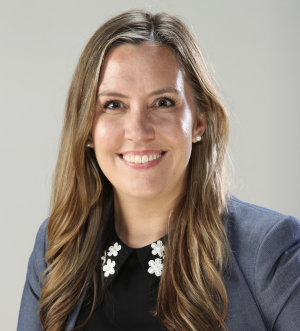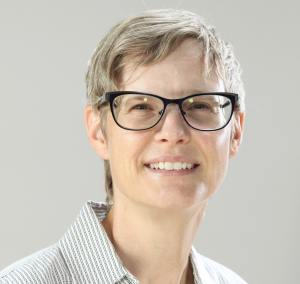Inviting Learners In through Enrichment in Early Education
By Ed Finkel
The Center for Talent Development (CTD) defines enrichment as content that “challenges students to apply and connect concepts across multiple content areas/disciplines, promoting critical thinking, problem-solving, and engagement with peers” (CTD, 2024). And at CTD, our expectation is that enrichment class content is “rigorous, designed to develop thinking skills, build psychosocial skills, and introduce academic content designed to be up to two years beyond a student’s school grade level.”
 While enrichment programming is fun, inquiry-based and playful, it is also a way to find and leverage students’ strengths, and it serves an important purpose in the talent development model, exposing students to different domains and allowing depth and breadth of study. For very young students, enrichment is a critical early opportunity for exploration and skill development with peers and adult experts.
While enrichment programming is fun, inquiry-based and playful, it is also a way to find and leverage students’ strengths, and it serves an important purpose in the talent development model, exposing students to different domains and allowing depth and breadth of study. For very young students, enrichment is a critical early opportunity for exploration and skill development with peers and adult experts.
“The research tells us that students in early childhood need opportunities to explore their talents; to experience rigorous, challenging academic tasks; and to have fun while learning,” says Jennifer Kendall, assistant coordinator for advanced enrichment programs, and an educator who has worked in public and private schools as well as in various capacities for CTD.
As such, CTD believes it’s important to offer these opportunities to students in that younger age group, not based on a set of stringent criteria, and both inside and outside of school. Because what’s best for them is to have access to those opportunities, to experience what it’s like to do critical thinking and creative thinking at high levels.
Enrichment Programming Opportunities
CTD encourages schools to include enrichment in its regular programming for all students, based on research that enrichment strengthens knowledge acquisition and the ability to generalize knowledge to new situations (Vales et al., 2020) for all students, and it also supports higher academic achievement for advanced or gifted learners (Kim, 2016). This can happen in classrooms and through specialized programs during and beyond the school day. Organizations like CTD also collaborate with schools to provide programming or offer their own services.
Access to early enrichment has been a major and growing priority for CTD during the past decade. The center reached a watershed five years ago when the decision was made to discontinue the use of test scores to demonstrate eligibility for course applicants in its pre-kindergarten through second grade weekend and summer programs and introduce more community-based programming, including its previous Accelerated Weekend Experience and its new CTD Encounters.
When students have greater access to those high-level enrichment opportunities, their talents grow, says Kate Cichon, assistant director of programs at CTD. “In our own programs, and when working with schools and community organizations, we want to make sure that we provide interest-based learning experiences and reduce barriers to student accessing those early childhood and early elementary opportunities, while maintaining a focus on depth, complexity, and novel ideas,” she says.
 CTD Encounters, for example, is a single, half-day experience—a sort of “CTD 101,”—based on open enrollment enrichment activities for pre-K through sixth grade, and can stretch as high as eighth grade if there is an interest, Cichon says. Through the CTD Encounters model, CTD is attempting to collaborate with schools and youth organizations to try to reach more students with enrichment, especially in schools where some Title I funds can be used to support the cost for students with financial need, Cichon says.
CTD Encounters, for example, is a single, half-day experience—a sort of “CTD 101,”—based on open enrollment enrichment activities for pre-K through sixth grade, and can stretch as high as eighth grade if there is an interest, Cichon says. Through the CTD Encounters model, CTD is attempting to collaborate with schools and youth organizations to try to reach more students with enrichment, especially in schools where some Title I funds can be used to support the cost for students with financial need, Cichon says.
“Between the open enrollment and the financial support provided by the school, it is removing even more barriers, including financial barriers,” she says. CTD is a self-supporting organization, which means it must charge fees for most of its programming, but it works hard to provide financial aid and seek out sponsorship to ensure access for students with financial need.
Expanding Concept of Enrichment
CTD is expanding its definition of “enrichment” for the benefit of staff training and also family outreach, to demonstrate more of what the term encompasses, Cichon says. “The enrichment that CTD provides engages young students in topics that they typically don’t have the opportunity to explore in-depth at school, such as physics, architecture, engineering, chemistry, or even creative writing. “We want children to dive deeply into these topics and grapple with high-level material while surrounded by other kids who are equally excited about the subject matter.”
Enrichment courses for early childhood are not built around students sitting in one place and doing activities with paper and pencil, Cichon says. “Students in these early grades need to move around, collaborate with their peers, handle materials, and above all, engage in playful learning the promotes curiosity and helps develop interests in a variety of topics,” she says. “This is truly where talent development begins—by exploring new topics and finding those subject areas that tickle our brains and make us want to dig deeper.”
This approach helps CTD engage children who have a wide array of interests and experiences, Cichon adds. “While our students are very bright, sitting in one spot and completing challenging worksheets is not the way most students at these younger grades learn material, and certainly not the way to ensure playful learning,” she says. “In order to make the material accessible and engage all students, our teachers design hands-on and experiential activities around high-interest topics. By tapping into students’ curiosity with inquiry-based projects and explorations, we can cultivate higher-level thinking skills and engage students in creative problem-solving.”
Adults can do so much more to help young people find and cultivate their interests and abilities. “There are gifted and talented children everywhere,” Kendall concludes. “And every child deserves to learn something new, every day, and to feel challenged. And to believe that they have the ability to develop talents, and that they have talents.”
Kim, M. (2016), A Meta-Analysis of the Effects of Enrichment Programs on Gifted Students. Gifted Child Quarterly, 60: 102-116. https://doi.org/10.1177/0016986216630607
Vales, C., States, S.L. and Fisher, A.V. (2020), Experience-Driven Semantic Differentiation: Effects of a Naturalistic Experience on Within- and Across-Domain Differentiation in Children. Child Dev, 91: 733-742. https://doi.org/10.1111/cdev.13369

